Buddies in Bad Times’ ted witzel discusses bold new season
The queer theatre company's new artistic director says this fall you'll see something you won't be able to see anywhere else in the city
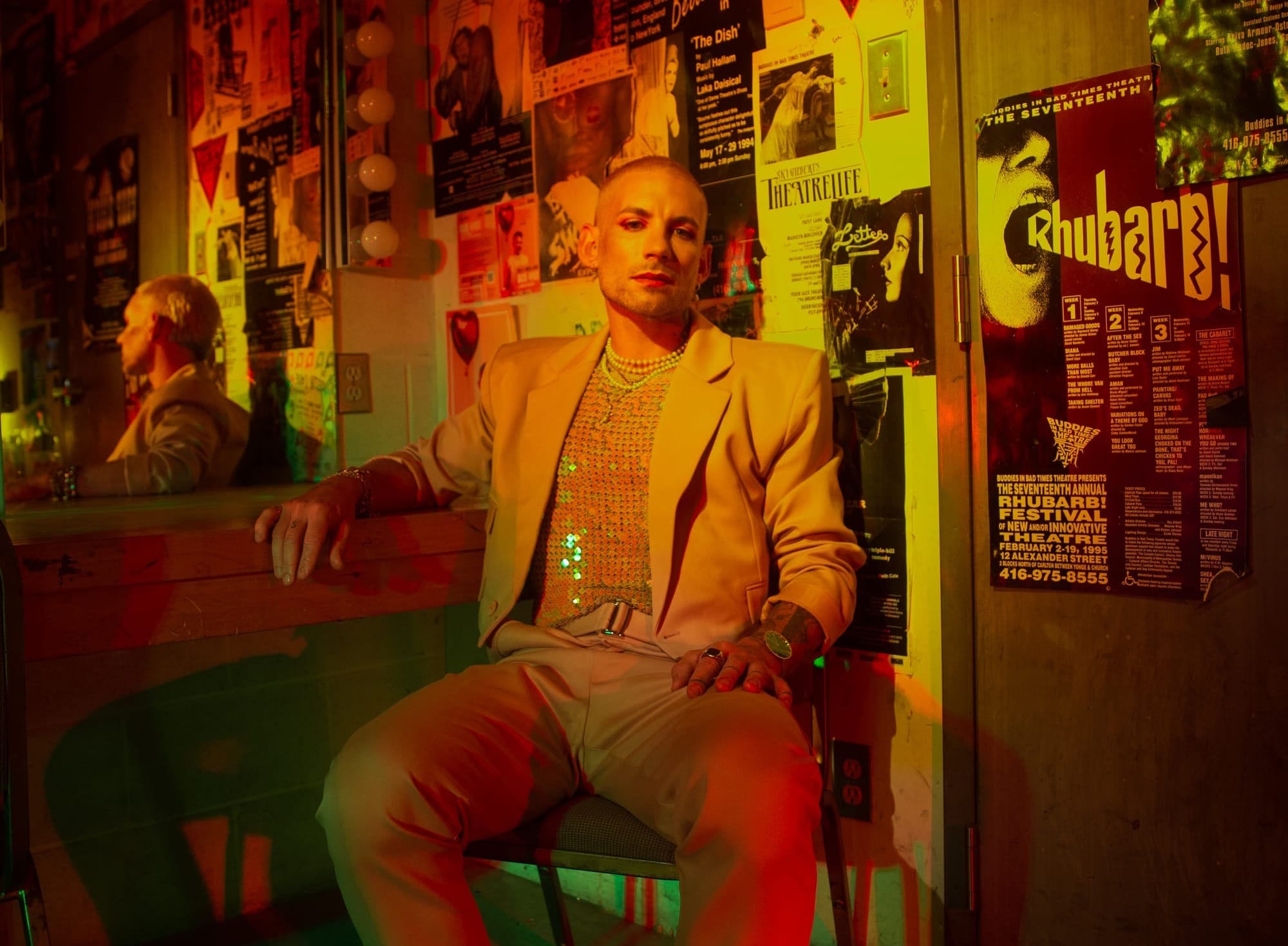
While many North American theatre companies are playing it safe by programming crowd-pleasing fare and remounting proven hits, the queer theatre company Buddies in Bad Times is doing the opposite.
It’s doubling down on what they do best: being provocative, edgy and bold.
“Buddies has cultivated an aesthetically literate audience – which is a snobby way of saying they’re fucking game for anything,” says ted witzel, the company’s artistic director.
“They are down to have some pretty sophisticated, formal propositions. They are down to read metaphor in a really exciting way. And they are ready to see something experimental. In fact, they will be disappointed if they don’t get to see that.”
All of which is a good introduction to the intriguing first season witzel has programmed (with artistic associate Erum Khan) for the company, launched today.
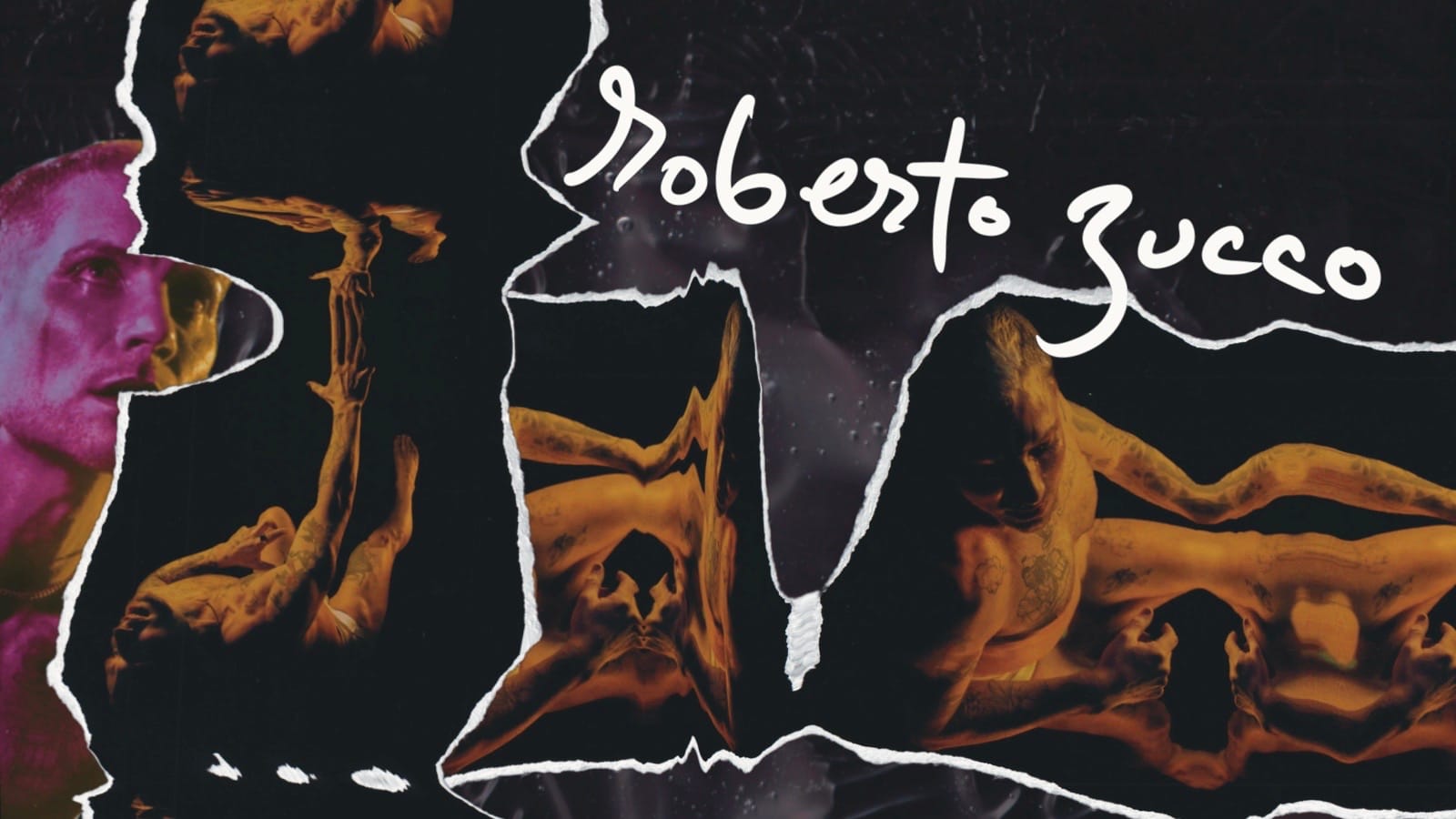
First in the lineup is a production of the rarely performed neo-noir play Roberto Zucco, by French writer Bernard-Marie Koltès, in a translation by Martin Crimp.
“I made a list of the plays that I could only do as artistic director at Buddies, and Zucco was at the top,” says witzel on a Zoom call from an international theatre meetup in Sofia, Bulgaria.
“Koltès is a hugely influential writer in Europe – he was the foremost writer in France after Genet and before Yasmina Reza. He dominated the 80s in French playwriting because he was offering something that was truly postmodern and also anticipated the globalized world.
It’s weird and violent, funny and epic. The way he wrote about how colonization had played out and had shaped French society was so ahead of its time.
“I first encountered the play in university, and didn’t understand it,” says witzel, laughing. “I think I’ve read it 25 times now. It’s weird and violent, but it’s also funny and epic. The way he wrote about how colonization had played out and had shaped French society was so ahead of his time. He wrote this play in the late 1980s, as he was dying of AIDS. And it’s fascinating when you read it through the lens of someone who is dying of AIDS, which is never mentioned in the play. There’s not even an explicit queer relationship in the play. But it is very much a play about the living through the eyes of the dead and the discarded. It’s about a man who is already being thrown away by society.
“It follows a sort of angel of death through the underbelly of Paris, and it’s like a scathing critique of the dominant culture that has failed to act on multiple overlapping injustices in the world. Yet it’s also transcendent. I don’t want to spoil the ending, but there is this movement and sense of possibility I find hopeful, in spite of the despair this man was living and dying with.”
Also in Buddies’ lineup is the world premiere of Oraculum, created by Canada’s Drag Race finalists Denim and Pythia. Is it a play, a sketch show, or something else?
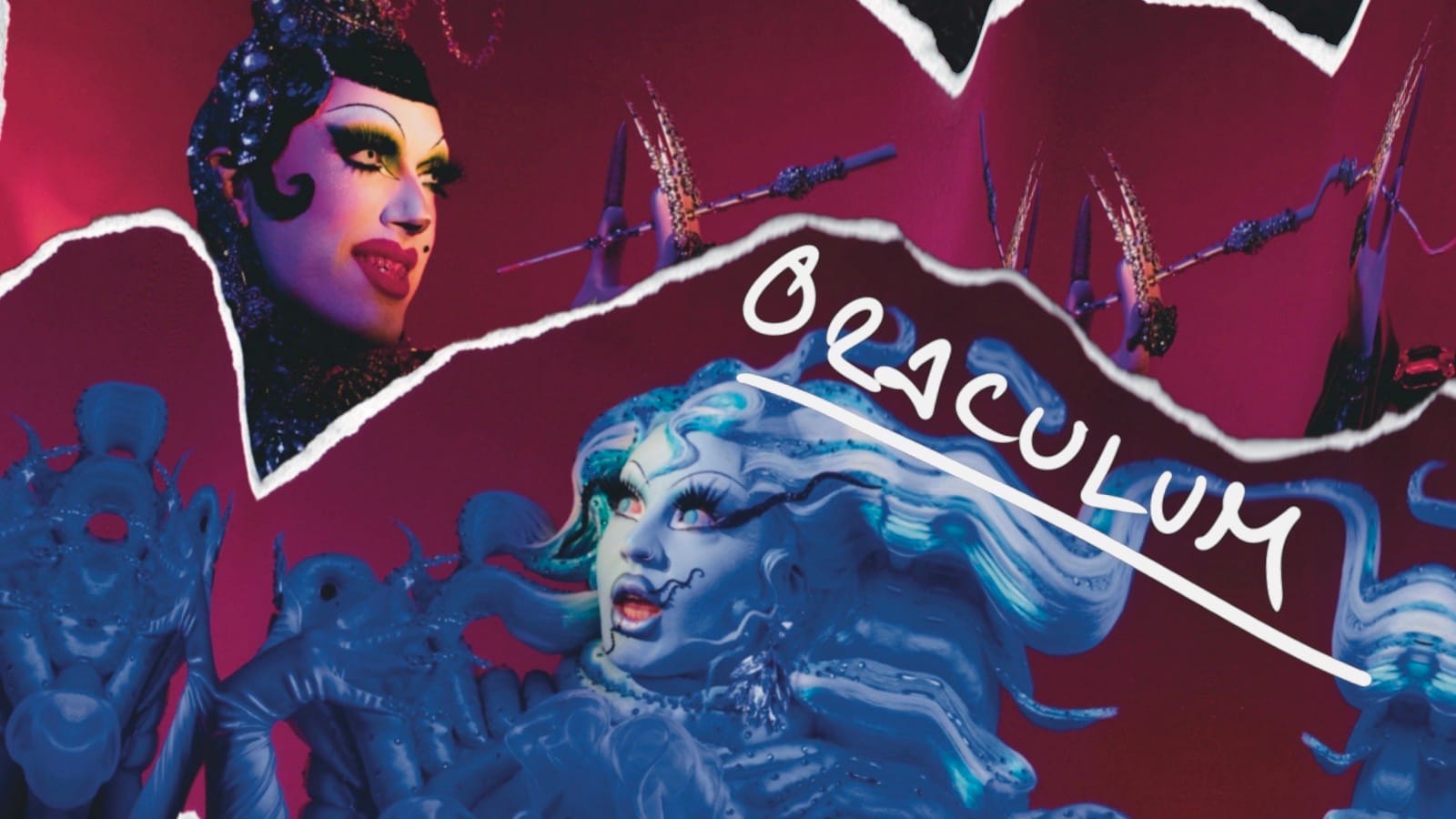
“We’re calling it a long-form drag piece,” says witzel. “It borrows the sketch aspect of drag performance in its aesthetic and vibe, but it’s story-driven and there are some anchor characters in it. When I watched Denim and Pythia’s Drag Race seasons, they both stood out to me as doing something avant-garde. Their design aesthetic, the imaginative worlds they live in are Gonzo but they are both such tender, sweet humans. There’s a real earnest artistry in what they do and how they live their drag careers. So when this piece came to me, I had a Zoom with them, and soon I was like, ‘Yeah, we’re doing this. Let’s go.’”
Witzel found out about playwright and actor Caleigh Crow when a publishing acquaintance reached out and told him her script would be up his alley.
Caleigh’s imagination is viciously funny – it’s sharp, theatrical, original. And while I think she’s Gen Z, it spoke to a kind of millennial malaise that I feel.
“They told me the title, which is There is Violence, There is Righteous Violence, and There is Death or; The Born-Again Crow, and I said, ‘Okay, put it in an envelope – I want to read it.’ When it came I read it right away. I told Erum, ‘You have to read this,’ and she said ‘Oh fuck, yeah.’ Then we sent it over to Joelle Peters at Native Earth Performing Arts and she was ‘Boom! Let’s do this.’ It was really one of those zero resistance choices.
“Caleigh’s imagination is viciously funny – it’s sharp, theatrical, original. And while I think she’s Gen Z, it spoke to a kind of millennial malaise that I feel. Jessica Carmichael is directing, and she’s got an amazing eye. Joelle and I knew we needed someone who really understood how to manage the design to fully realize Caleigh’s work.”
Also on the bill is Amanda Wilkin’s Shedding a Skin, a Nightwood Theatre production in association with Buddies.
“Andrea [Donaldson] at Nightwood shared it with us and we were like, ‘This feels kind of perfect.’ We were holding a lot of pieces that had this real Buddies grit to them, and Amanda’s play feels... tender. It’s beautifully tender but she doesn’t erase her rage or her politics. It’s about a woman who’s earnestly trying to figure out how they commit to a cause and how they live their values inside the late-stage, hetero-partriarchal, settler colonial, capitalist nightmare that we all live in. There are formal devices in the play that uplift it, and there’s a warmth and generosity that are really beautiful.”
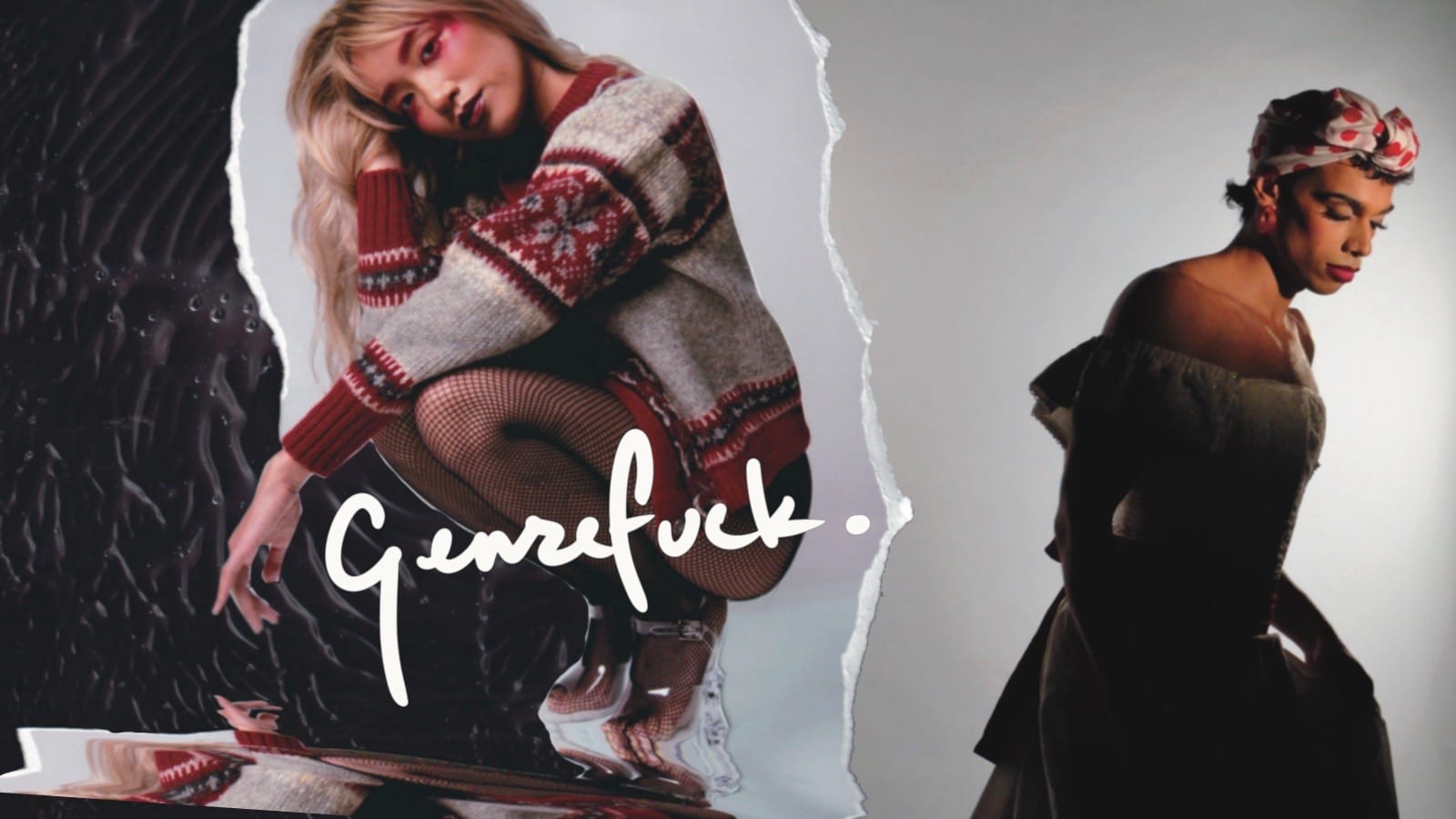
Genrefuck is a series of four solo shows – two by local artists (Julie Phan and Augusto Bitter) and two by out-of-towners (Marikiscrycrycry and Gabriel Dharmoo) – that will run over three weeks in a series of "rolling double bills.”
“Julie and Augusto’s pieces have really strong touring potential,” says witzel. “I hope to see them moving to festivals. I wanted to give them a context that was bigger than they’d have at Rhubarb! But also, solo shows are hard to market and draw a crowd with. I’m hoping that by giving people a container, and a way of reading what’s happening in the shows both formally and contextually, we’ll be able to draw people in to make a full night of it.
“Soho Theatre in London uses this same schedule structure, where there are shows at different times in a night, and I think this will help to engage the audience more. We’ve also got these two brilliant out-of-town shows which we’ve seen on video. They’re doing things with drag, opera, dance and horror in really inventive ways. International performance is hard to get Toronto audiences out to, so pairing each one with a local show is about generating audiences. There’s also so much to be learned from uploading and downloading work globally.”
Witzel hopes other shows in the season travel – especially ones like Oraculum that won't have elaborate design elements.
“I think the work we produce at Buddies deserves to be shared,” he says. “When I explain what Buddies is to international colleagues they say there’s nothing else like it. Even in Berlin, which is a pretty gay place, they don't have an anchor queer theatre like Buddies. They don’t have places that explicitly fold queer aesthetics into their raison d’etre. So it’ll be great to be able to export Canadian artists’ work. I’d love to see more Buddies artists on the festival circuit. That’s a priority for me in the years to come: to build the networks and relationships that ensure artists making work at Buddies can move internationally, and also that international artists can come to Buddies.”
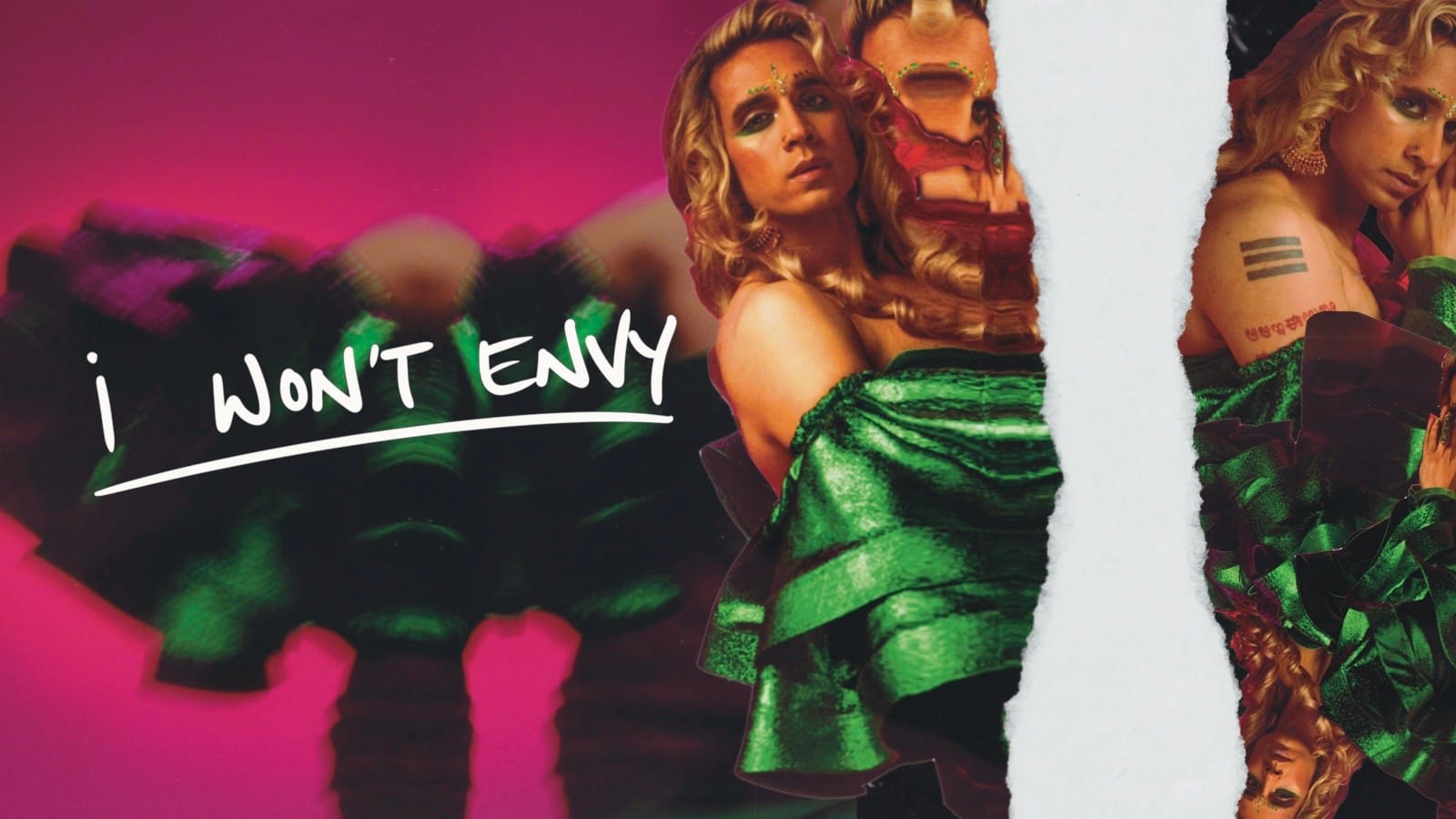
Sometimes that work doesn’t even have to take place in a physical theatre. Case in point, Vivek Shraya’s upcoming podcast co-produced with Buddies, I Won’t Envy, which deals with professional jealousy.
“Vivek is an artist who has long been associated with Buddies,” says witzel. “Her early work was at Buddies, and there are conversations [about other projects] that we continue to have. She pitched this podcast to us. Some of the season’s artists will be guests, so that’s part of the intersection, and she needed a place to host it. And because the conversations she’ll be having are around artistic practice, I feel like they add another dimension to this season.”
Other events in the season include the Next Stage Theatre Festival, an all-night series of overlapping projects during Nuit Blanche, the aforementioned Rhubarb Fest and hosting of Last Landscape, a show by Bad News Days in partnership with Common Boots Theatre.
One thing is clear. When you enter the Buddies space this fall, the vibe is going to be different from the moment you arrive.
“We’ve changed the box office and front of house department and we’ve renamed it the hosting department,” says witzel. “We’re not looking at processing people like customers but rather welcoming them as guests. It’s our deep belief that what people are seeking right now are big experiences. People want to make a whole night of something. So when you enter the building, you’re going to see a bunch of sexy queers dancing at the door, they’ll bring you in, and you’re going to see something you couldn't see anywhere else in Toronto.
“That’s the relationship we want to build with people. Yes, we’re taking a risk. But there is no other theatre in Toronto that is a home for artistic risk-taking like we are.”
Full details about Buddies’ 2024-2025 season here
Coming soon: Musicals! Musicals! Musicals!: a review round-up of shows at the Shaw Festival, Mirvish, and even the tiny Red Sandcastle Theatre. Plus I’ll review the new Tim Hortons musical (which I previewed here) and discuss a moving documentary about one of the original cast members of Hamilton. I’ll also finally weigh in on the excellent new Second City Toronto revue, and look ahead to the Toronto Fringe.
